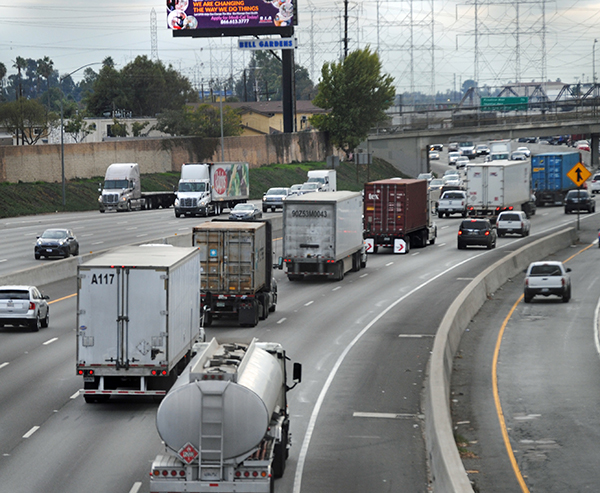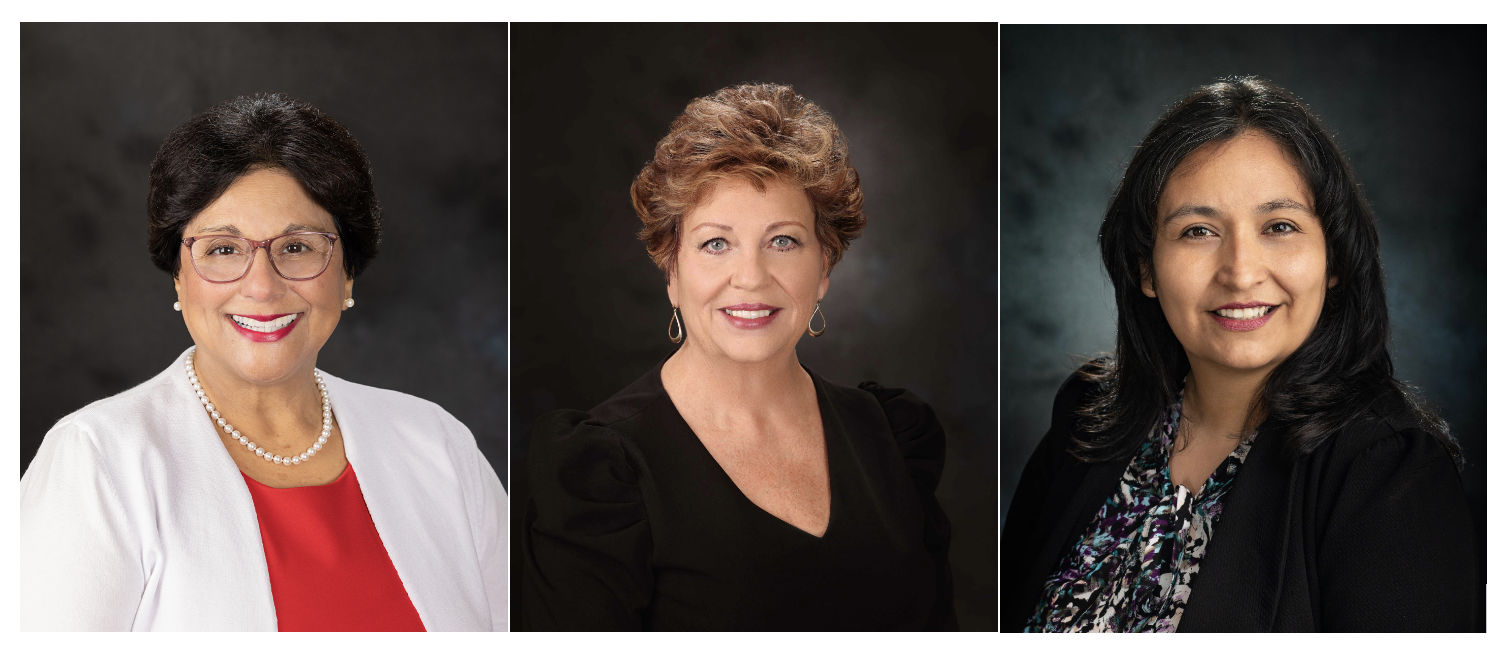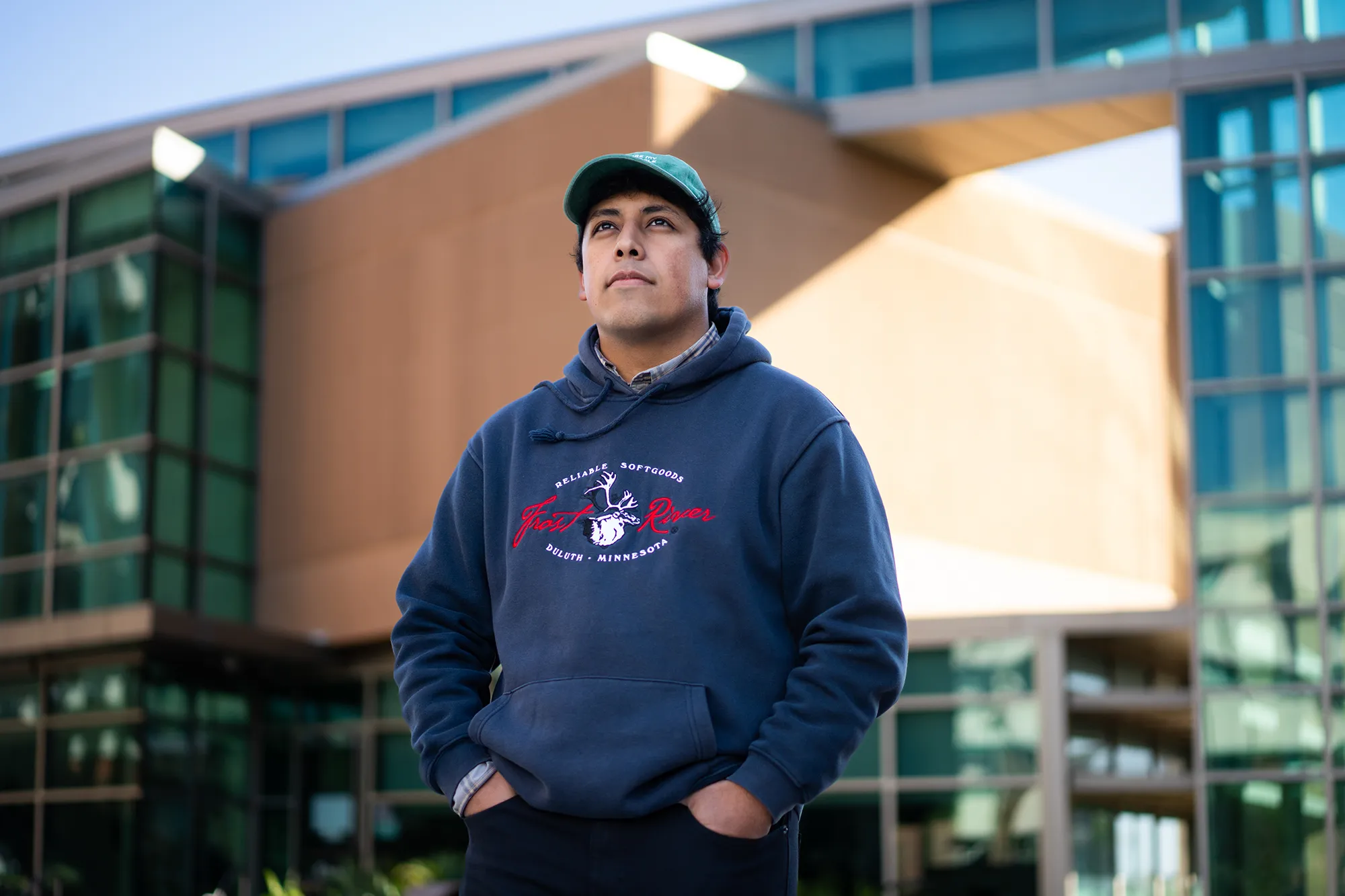By Alfredo Santana
Contributing Writer
LOS ANGELES — A revived task force studying the Long Beach (710) Freeway has committed to include diverse stakeholders and residents living near the freeway to offer their ideas focusing on less traffic, carbon emission reductions and safer transportation.
KeAndra Cylear Dodds, executive officer of equity and race at the Los Angeles County Metropolitan Transportation Authority, said the task force is working out details on how community members can participate and have their proposals and experiences evaluated for potential projects.
She said the task force will form a community leadership committee to study remediation proposals, lay out strategy, advance efforts and help gather truth using government data and findings from residents affected by the freeway’s noise and pollution.
Reeling from a canceled project to widen traffic lanes in a 20-mile stretch of the freeway from Long Beach to the Pomona (60) Freeway in East Los Angeles that called for displacing hundreds of residents and businesses, task force members are wrestling with how to proceed with fresh proposals that would garner community and financial support.
In a meeting last week, task force members emphasized they are committed to considering proposals that reduce truck and vehicle emissions, end displacements and stop what some have called years of environmental racism against poor residents along the busy highway stretch some have called the “diesel death zone.”
“Ultimately, we are striving for justice,” Dodds said.
Ernesto Chaves, director of highway programs for the MTA, said affected residents should be prioritized on the process of finding solutions to increasing noise, pollution and traffic hazards produced by the thousands of cargo trucks that pick up containers from the Ports of Long Beach and Los Angeles.
Chris Chavez, deputy policy director for the Coalition for Clean Air, questioned Chaves whether the meeting was a public relations effort to erase bad feelings caused by the proposal to widen the freeway.
He reminded the audience that in spite of fresh and equitable approaches, both the state Department of Transportation and the MTA had to abide by environmental regulations and federal laws governing highway transportation.
Chaves said that the displacement approach is history.
“One thing we emphasize is that Alternative 5, [the project that sought to add lanes and displace residents] is not longer pursued by [the MTA] and Caltrans,” Chaves said.
Before the plans were scratched, the 710 Corridor Project sought to lessen noise and pollution by shifting transportation of containers to trains using the Alameda Corridor railroad line and implement a clean truck program to offset diesel emissions of more trucks on the road.
But in October, after 15 years of planning, the U.S. Environmental Protection Agency rejected an alternate air quality review put forth by the local transportation authorities, because it deviated from the Clean Air Act and did not include hot-spot analysis of emissions “in an area with the worst air quality in the United States.”
Luke Klipp, senior transportation officer representing county Supervisor Janice Hahn, said that although community engagement is welcomed to move forward with future projects, funding will be necessary to approve any works.
Klipp said that based on previous experiences, Hahn wants to empower community participants with resources so that their voices are translated into material actions to clamp down on pollution, traffic hazards and improve the quality of life.
“This committee should provide updates, but also proposals that can be funded through various sources,” Klipp said. “[Hahn] wants the community to have more opportunity to weigh in and have the opportunity to find out what projects can be funded with what’s available,”
Long Beach Harbor Commissioner Sharon Weissman said the task force’s current makeup is lopsided with representatives from government agencies and organizations, had too many people and would grow more with community members from impacted Southeast Los Angeles neighborhoods.
“I have a concern that there are many people at the table with the task force,” Weissman said. “There are many cities along the corridor, and we don’t want to see non-representation at the steering committee. But I don’t see a balance.”
Ghirlandi Guidetti, housing and community attorney with Legal Aid Foundation of Los Angeles, said the process of assembling a leadership committee should include members of communities from Lynwood, South Gate, Cudahy, Compton, Paramount, Bell, Bell Gardens, Maywood, Commerce and East Los Angeles.
“The contours of it look good,” Guidetti said. “I’m concern that the devil is in the details. One is how can community members comment on the process and make sure they count. We need to meet folks, their comments percolate and make sure their comments count.”
East Los Angeles resident Clara Solis said any community outreach should include folks living in homes adjacent to the freeway.
“There are 10 people in East L.A. interested in helping the county,” Solis said. “I think you should do better outreach, because if you don’t, there would not be enough support for this to happen.”
Historic displacements in underserved communities to make room for freeway expansions caught the attention of Assemblywoman Cristina Garcia, who plans to introduce a bill early next year to ban the practice in California.
Garcia’s 58th District stretches from Montebello to Lakewood, including Pico Rivera, Cerritos, Commerce, Norwark and Downey. She is from Bell Gardens.
Michael Cano, executive officer of goods movement and state policy and programming with the MTA, said hisn agency is discussing outreach options like advertising in print and electronic newspapers and other media.
“We like to hear from you about tangible, specific projects like how transit affects kids going to school, etc. Any thoughts, ideas, you can drop us a line,” Cano said.
People wishing to comment on the I-710 South Corridor project, can call (213) 922-4710, or email at 710Corridor@metro.net.












